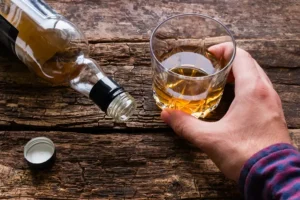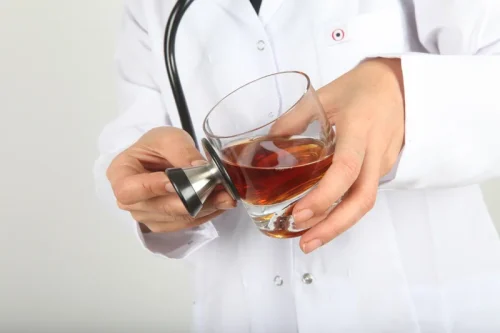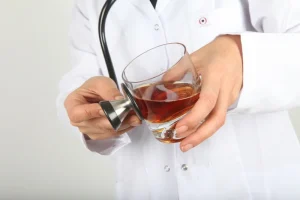Going Back to Rehab: Will Rehab Work a 2nd Time?
By admin

Seeking support and redoubling your efforts to https://ecosoberhouse.com/ remain sober are imperative. The most important factor in your decision to return to rehab should always be your personal health and safety. Building recovery capital requires you to analyze the different areas of your life to identify how they can be modified to support the best version of yourself. There is no one-size-fits-all approach to building recovery capital. In treatment at All Points North Lodge, our clinicians will work with you and use these categories to customize a support plan rooted in recovery capital. Studies show that more than 85% of people working towards sobriety will relapse at some point, with two-thirds of those occurring in the early weeks and months after choosing sobriety³.
What to Expect When Going Back to Rehab
To determine if going back to rehab is necessary, it’s important to understand the definition of relapse, the qualities of lasting treatment, and the individual’s current situation. If you have determined that you can benefit from a second round of treatment, consult an addiction treatment professional today. On the other hand, if you have begun shooting heroin once again and have been doing so for several months, going back to rehab is in your best interest. Long-term substance use will cause withdrawal symptoms that need to be treated in a medical detox center. It will also make it difficult for you to stop without professional help. Some stages, such as the pre-contemplation and contemplation, can last for several weeks or even months before a person takes the action of substance abuse.

You are doing things in excess and having a hard time controlling it.
A relapse does not indicate personal failure or that your initial treatment cycle and support channels did not work. Remember, recovery is a journey, and there’s always something new to learn in treatment. Picking up where you left off after a relapse is an empowering step in the right direction.
- We know that the first day of treatment can be overwhelming for anyone.
- With so many possible triggers, an AUD relapse is not out of the ordinary as 40-60% of substance users experience a relapse.
- Most of them depend on the type of substance that a person is addicted to.
- It may be that you need to find new ways to cope with stress by exploring relaxation techniques such as deep breathing, meditation and yoga.
We have beds available. Call for same day admission.
- However, getting back into weekly therapy or consultations may help you overcome your ongoing difficulty.
- We are happy to discuss our in-house treatment options or coordinate a referral.
- Going back to rehab after a relapse is usually the last thing someone wants to do, but it is the most reliable way to help them back to the path to sobriety.
- Rehab can also help you pinpoint what caused your relapse so you don’t make the same mistakes again.
If you’re having trouble deciding whether or not to join rehab again, however, we’ll go over some of the potential issues you should keep in mind. It takes much work, and often several therapy sessions, for many individuals in recovery to remain clean. Right now, you might be on what feels like a never-ending Ferris wheel of using and quitting, using, and quitting, and so on. In these cases, the best way to end the cycle is to give up fighting it and reach out for help. In a slip-up, you have used one time and were able to rebound quickly.
There are many myths surrounding relapse, some deeply ingrained and widely held. If not addressed thoroughly in rehab, these beliefs can lead to relapse after rehabilitation is complete. You can also call us at and connect with a person who can help locate suitable rehab programs and verify your insurance benefits. Having to return to rehab should not be considered a failure, but rather an act of courage. What matters is that you realized the dangers of falling back into addiction and valued your life enough to make a positive change. In the event that a slip has occurred, you can usually get back on the right track by going to a meeting, discussing the slip with a sponsor or a counselor and avoiding your triggers.
- Make sure that you’ve found a therapist who both understands the recovery movement and with whom you feel comfortable.
- Creating a sober social life includes finding ways to grow and use all of your skills and abilities.
- Craving is a powerful phenomenon, and the majority of addicts will relapse even after treatment.
- Engaging with recovery groups also offers shared experiences that can foster resilience and breakthroughs in personal recovery.
- Relapsing during the early stages of recovery is common, and many people who do so are able to bounce back and regain control of their sobriety.
There are Halfway house several additional factors to consider about treatment when deciding to go back. Because alcohol abuse alters the brain’s basic structure and function, negative changes can persist even after alcohol use has ceased. More treatment may be needed to continue correcting the changes that have been made to the brain’s normal operation.

Uncover drug rehab success rates, define treatment success, review addiction stats, and learn if relapses mean failure. Dr. Saman is a mental health writer with over six years of experience in freelance writing, editing, and proofreading. She is a practicing healthcare professional holding a doctorate in physical therapy at DOW University of Health Sciences.

You are becoming less cautious of your triggers.
Others relapse repeatedly, struggling to regain control over going back to rehab their addiction. These individuals often want to return to rehab but are held back by the shame of admitting defeat and starting over again. You are learning the tools you need to achieve your goal of sobriety, and returning to rehab will strengthen the tools you have, and give you more options to choose from in your future. If your pattern appears more like a “slip” and not a relapse, reach out to your counselor or sponsor, find a meeting, or schedule an outpatient session. Explore the circumstances that resulted in your “slip” and avoid triggers.
Enjoying a Social Life without Substances

Additionally, a return to rehab can help you figure out what triggered the relapse to begin with, and give you specific tools to help combat the urge to resort to drugs or alcohol. A “slip” is usually when a person has slipped into misusing a drug or alcohol. When a “slip” occurs, the person typically sees this as a negative and doesn’t continue on a path back toward addiction. At Resurgence, we always treat your total health, not just your addiction.
Returning to Rehab After Relapse: Does Rehab Work the 2nd time?
- Participants work through a step-by-step process, enhancing their understanding of addiction while building a supportive community.
- However, the truth is that drug and alcohol treatment-relapse rates are comparable to the relapse rates of other medical conditions that people have much less control over.
Open communication about sobriety goals with loved ones can fortify support networks and reduce the risk of social pressures that might lead to substance use. Joining support groups and aftercare programs can foster connections and friendships that promote accountability and emotional stability. Some people are able to make sense of a “slip,” but a full-blown relapse is something altogether. Wanting to get help early into a relapse saves many addicts from the same horrors that they got sober from. Since working for Elevate, I’ve continued to develop skills related to linear thinking and problem solving, which have contributed to streamlining operations and successful risk management.